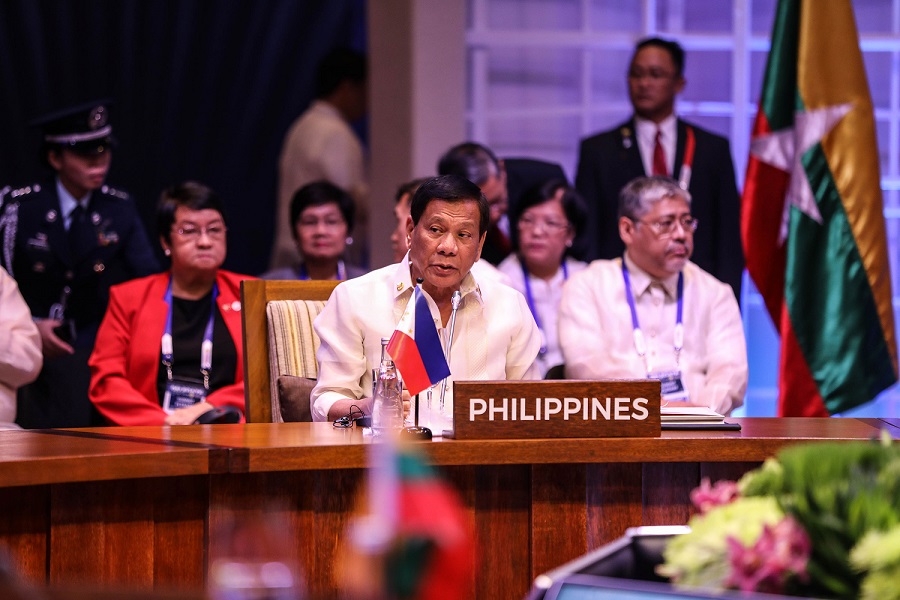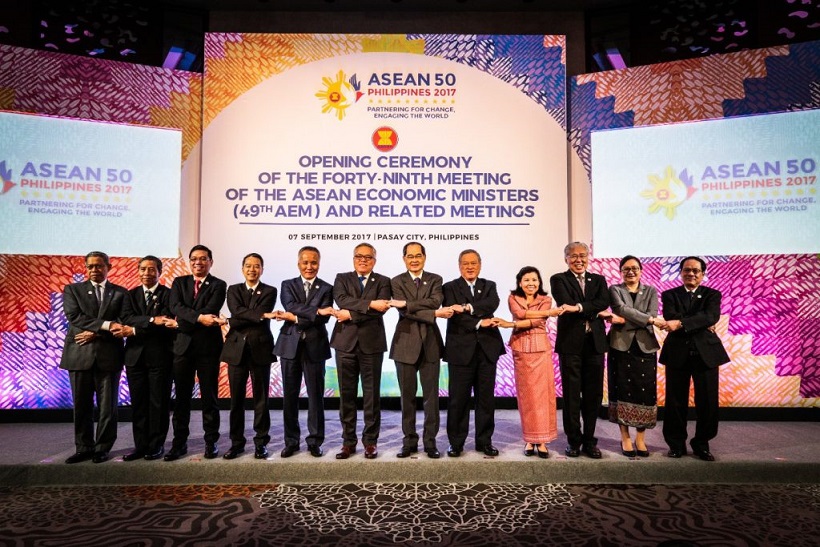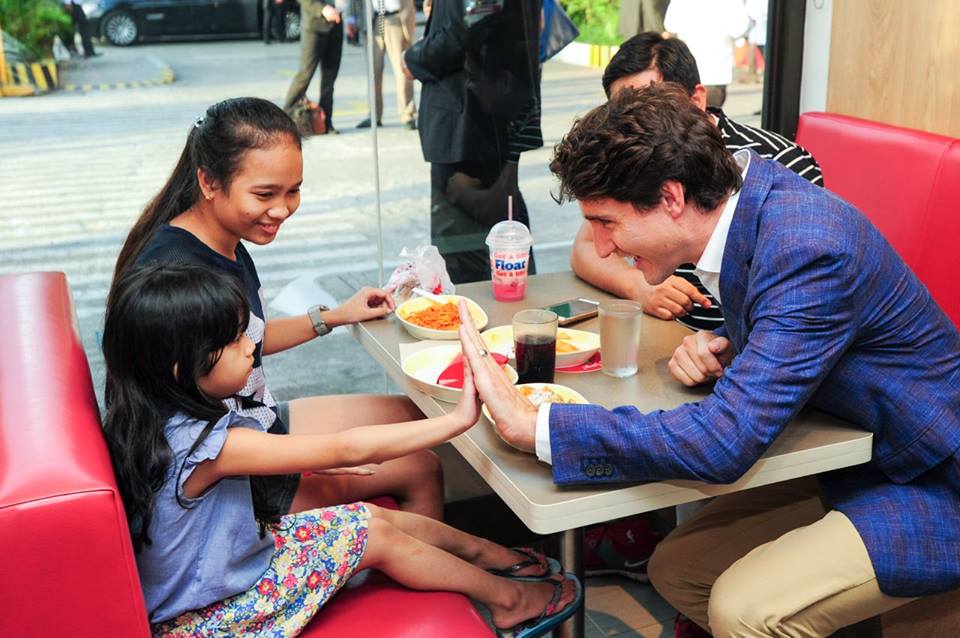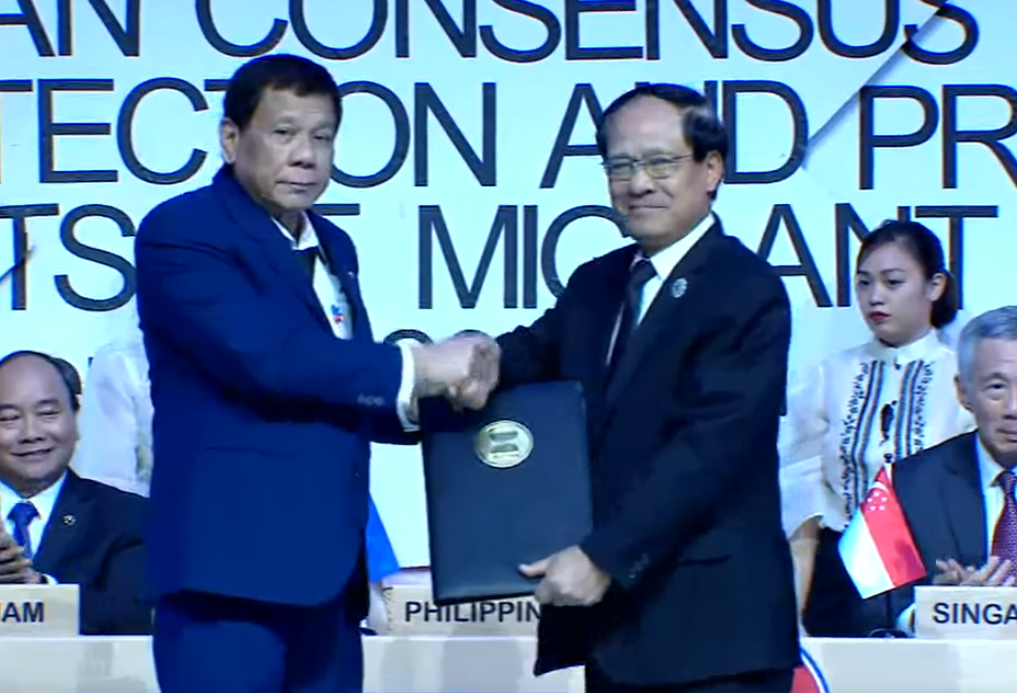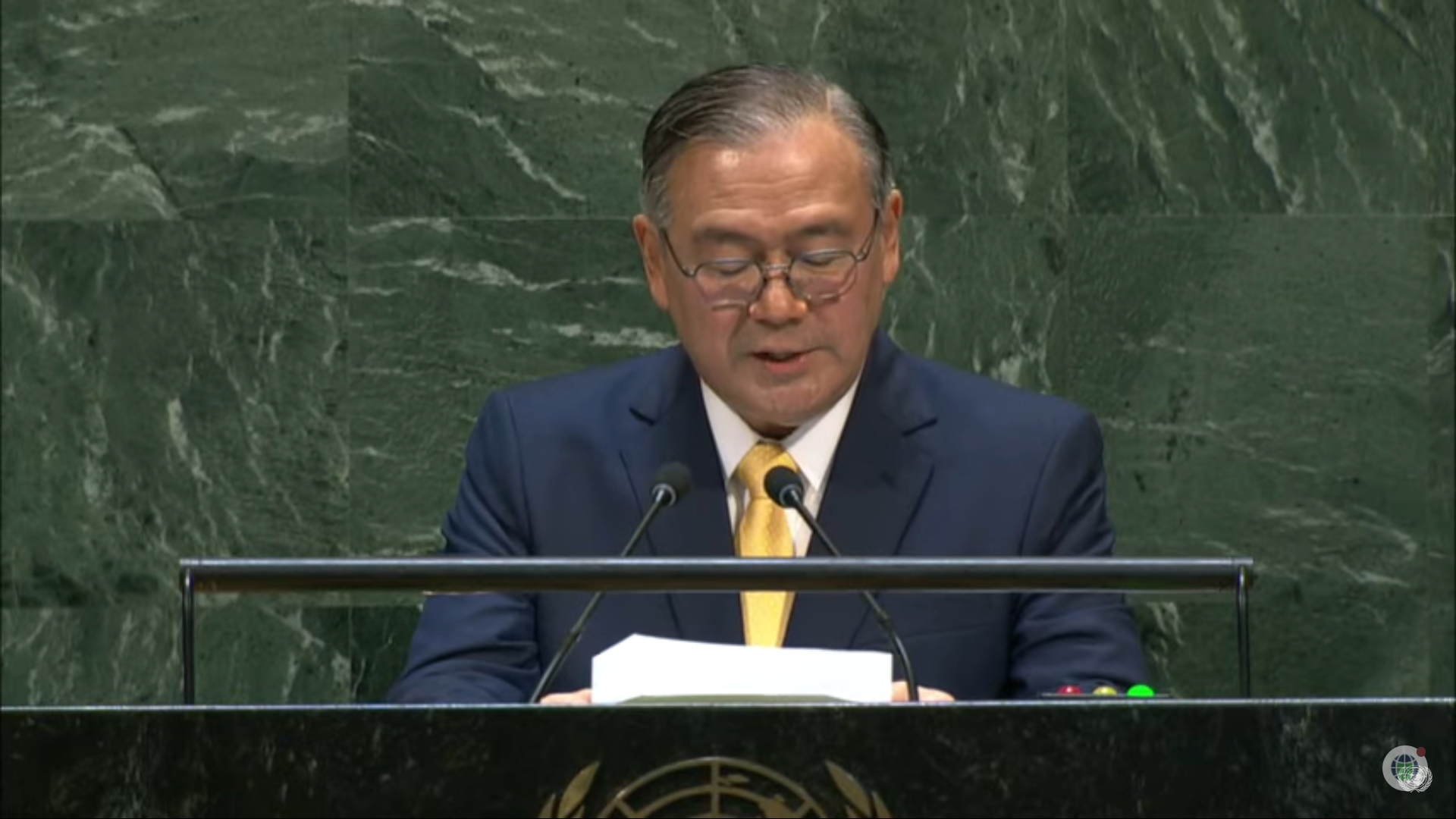Southeast Asian foreign ministers want a more effective use of social media as they re-affirmed a wholistic approach to counter the threat of terrorism.
Reflecting their serious concern over the threat of terrorism, foreign ministers of the Association of Southeast Nations (ASEAN) are expected to underscore the folly of “a purely military option in combatting the problem,” as seen in the draft of the AMM joint Communiqué.
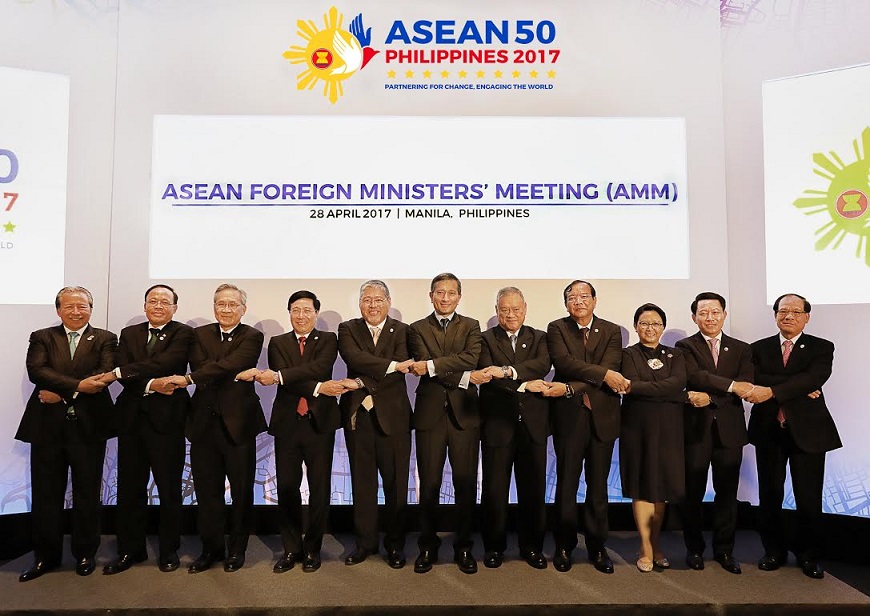
ASEAN Foreign Ministers in a traditional ASEAN photo shoot at last April’s summit
The statement is significant for the host, Philippines, whose armed forces are winding up the more than two-month battle with Muslim extremists in the southern city of Marawi, which compelled President Duterte to declare Martial Law in the whole of Mindanao.
“We likewise reaffirmed the importance and effectiveness of the whole-of-nation approach as opposed to a purely military option in combating the problem, including through preventive education, involvement of women and youth and civil society, promotion of peace and moderation as a counter-narrative, and more effective use of social media in countering terrorist messages online,” the draft joint Communiqué stated.
A source from the Department of Foreign Affairs said that the Philippines has prepared an intervention during the exchange of views on regional and international issues that will relate on its experience battling the scourge of the Islamic State(IS)-linked Maute group in Marawi.
“It (issue of terrorism) is likely to dominate the AMM discussion more than the South China Sea,” the source.
ASEAN states under its charter are bound by the principles of non-interference in the internal affairs of ASEAN member states and respect for the right of every Member State to lead it national existence free from external interference, subversion and coercion.
But similar to their statement last year in Laos, the foreign ministers are expected to again reaffirm their commitment ‘to combat this plague through effective implementation of measures and counter-measures at the national, regional, and sub-regional levels under the ASEAN Convention on Counter-Terrorism (ACCT), the U.N. Global Counter-Terrorism Strategy, and the U.N. Plan of Action to Prevent Violent Extremism.”
The ASEAN ministers will also welcome the Trilateral Meeting on Security between the foreign ministers of Philippines, Indonesia and Malaysia on 22 June 2017 Meeting in Manila and their follow up meeting in October this year.
As for the South China Sea issue, maintaining their statement last year, the ministers in their draft communiqué will again “reaffirm the importance of maintaining peace, stability, security and freedom of navigation and overflight in and above the South China Sea and underscore the importance of the full and effective implementation of the DOC in its entirety.”
But this time the draft joint communiqué opened their statement on the South China Sea by welcoming the conclusion of negotiations on a framework of the Code of
Conduct of Parties in the South China Sea (COC) and by only taking note of concerns expressed by some Ministers over recent developments in the area.
Not quite similar to the Laos Joint communiqué last year that opened their statement on the South China Sea with how they “remain seriously concerned over recent and ongoing developments and took note of the concerns expressed by some Ministers on the land reclamations and escalation of activities in the area, which have eroded trust and confidence, increased tensions and may undermine peace, security and stability in the region.”
“We reaffirmed the importance of enhancing mutual trust and confidence, exercising self-restraint in the conduct of activities, pursuing mutually agreed practical maritime areas of cooperation, and avoiding unilateral actions in disputed features that may further complicate the situation in keeping with the principle of peaceful resolution of disputes without resorting to the threat or use of force,” the draft of this year’s AMM joint Communiqué stated.
What was stricken out from this year’s statement as it is initially drafted is to pursue peaceful resolution of disputes “in accordance with international law, including the 1982 United Nations Convention on the Law of the Sea (UNCLOS).”
It can be recalled that the Philippines won an arbitral award from an UNCLOS tribunal at The Hague Permanent Court of Arbitration that invalidated the nine-dash line claim of China in the South China Sea and recognized the maritime entitlements of disputed features there.
A framework on the COC in the South China Sea was concluded on 18 May 2017 in Guiyang, China. In line with this, according to the draft statement, the ministers will task the Senior Officials of ASEAN and China under the ASEAN-China Senior Officials’ Consultation (ACSOC) mechanism “to begin earnest discussions on a substantive and effective COC on the basis of the framework as soon as possible.”
Also absent in the draft joint communiqué this year, is the “non-militarization” in the conduct of all activities including land reclamation in the South China Sea as emphasized in their statement in Laos last year.
The Philippine chaired ministerial statement instead, as per the initial draft said:
“We welcomed the operationalization of the Guidelines for Hotline Communications among Senior Officials of the Ministries of ASEAN Member States and China in Response to Maritime Emergencies in the Implementation of the Declaration on the Conduct of Parties in the South China Sea (DOC) and look forward to the early
operationalization of the other early harvest measure which is the Joint Statement on the Application of the Code for Unplanned Encounters at Sea (CUES) in the South
China Sea.”
A joint communiqué in ASEAN unlike a chairman’s statement that is purely the chairman’s sense of the meeting, is a negotiated statement among the ministers. It is chairman-led. It sums up the discussions of the ASEAN ministers in plenary and the retreat. Every text that goes into the communiqué is under the consensus rule of ASEAN.
For the first time in ASEAN history, ASEAN failed to reach a consensus on a joint communiqué in 2012 during the chairmanship of Cambodia. The Philippines was pushing for a text to be included in the statement on the South China Sea that Cambodia as chair opposed.
The South China Sea issue has dominated ASEAN meetings in recent years, following the Scarborough shoal incident between Philippine and Chinese coast Guard, Philippine’s filing of an arbitration case against China, the land reclamation activities in the disputed area and other incidents that raised tension in the area.
Four of ASEAN 10-member states have overlapping territorial and maritime claims over the South China Sea. Philippines, Vietnam, Malaysia and Brunei have sovereignty/sovereign rights dispute with China and Taiwan in the oil-rich Spratlys chain of islands in the South China Sea. Philippines also has a bilateral territorial dispute with China over the Scarborough shoal. While Vietnam is contesting ownership with China over the Paracels.
The Philippines is this year’s ASEAN chair and hosting the 50th ASEAN Foreign Ministers’ Meeting, Post Ministerial Conferences, 18th ASEAN Plus Three Foreign Ministers’ Meeting, 7th East Asia Summit Foreign Ministers’ Meeting and 24th ASEAN Regional Forum this week in Manila.
